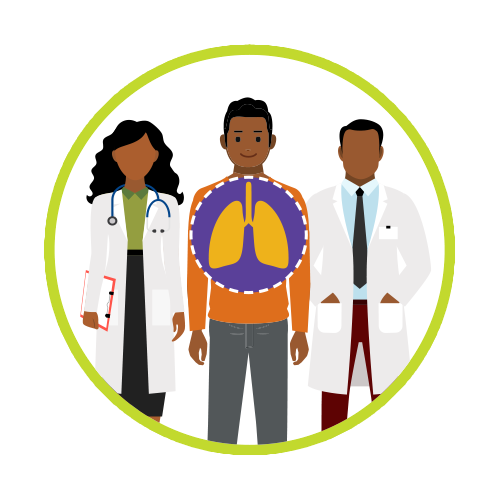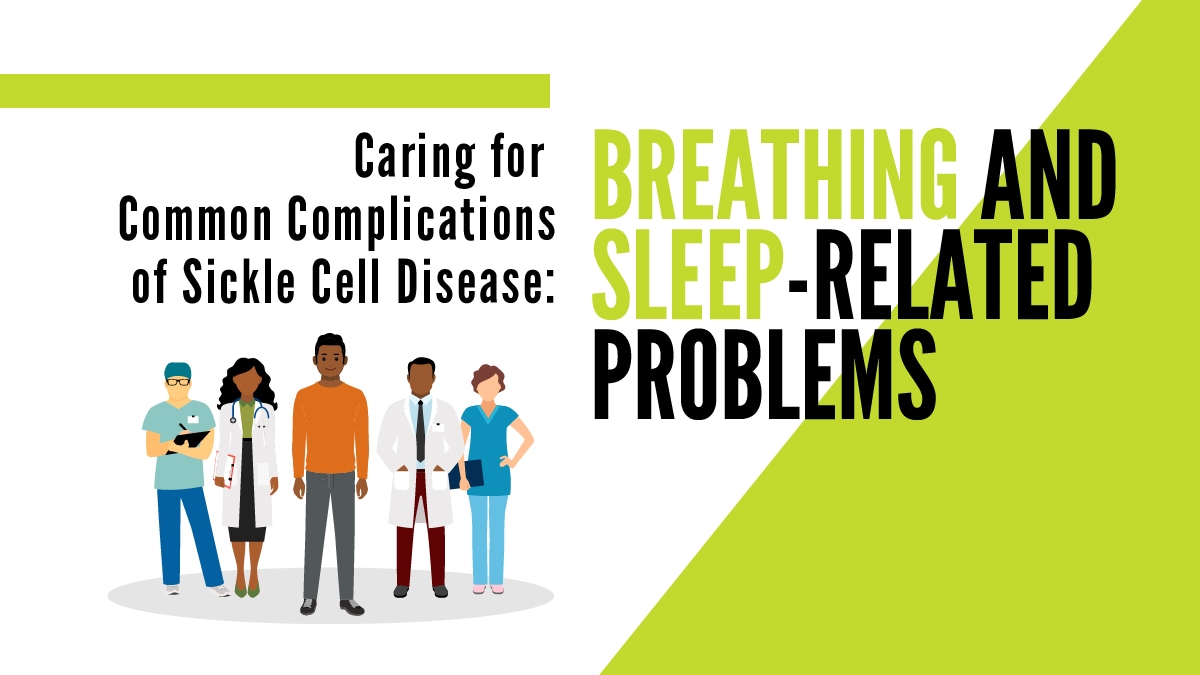What to know
This Steps to Better Health fact sheet provides easy-to-read information for people with sickle cell disease (SCD) about lung health.

Overview
People with sickle cell disease (SCD) are at greater risk than the general population for lung problems. Lung problems can cause breathing-related difficulties and disorders and sleep-related disorders. Share your medical history with your healthcare team so it can properly identify and treat any complications of SCD you have or may develop. Your healthcare team may include your primary care provider, SCD provider, and any other healthcare specialists. Below is one step you can take towards better lung health.
Checklist
Talk to your provider if you have, or have ever had, any signs or symptoms of breathing- or sleep-related problems. Use the checklist below to guide this discussion.
Coughing/wheezing
Shortness of breath
Difficulty breathing with exercise
Chest pain
Snoring
Being very sleepy or drowsy during the day
Early morning headaches
Inability to focus or think straight, confusion
Low oxygen levels (“hypoxemia”)
Acute chest syndrome (life-threatening complication of SCD)
Blood clots in the lungs
Stroke
Frequent pain episodes
Recurring, prolonged erection of penis
Bedwetting after 10 years of age
Fainting/dizziness
Congestive heart failure (when the heart’s ability to pump blood to the body is very impaired)
It is important to share your checklist with your provider because he or she may need to perform
- A sleep study (a test used to diagnose sleep disorders); and/or
- Routine testing to measure how well your lungs are working.
Learn more about sleep disorders.
This information is based on ASH SCD Guidelines: Cardiopulmonary and Kidney Disease.

